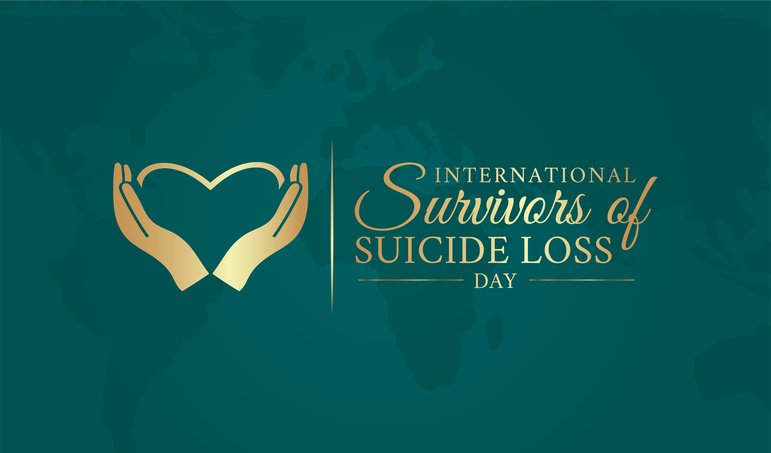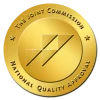Suicide is highly stigmatized and misunderstood, making the loss loved ones experience even more painful and isolating. International Survivors of Suicide Loss Day (ISOSLD) has occurred each year on the Saturday before Thanksgiving since 1999. It is intended to bring awareness to suicide and the loss survivors experience, and also to help the survivors find increased support. At Carolina Dunes Behavioral Health, near Wilmington, North Carolina, we help patients with suicidal thoughts and their families.
Truths Suicide Loss Survivors Need to Hear
When people lose a friend or family member to suicide, they experience immense pain and often have many unanswered questions. The Tragedy Assistance Program for Survivors (TAPS) has put together a list of “Things We Know to be True”, to help those left behind cope:
- You are not alone – 700,000 people around the world die by suicide each year, which is horribly sad. But it’s a reminder that many other people in the world have also lost a loved one to suicide, and by supporting each other, survivors may feel less isolated.
- The pain will become more manageable –you will always love and miss the person you have lost, but the pain will evolve and change with time and support.
- People who ended their own lives typically did not want to die – they wanted to end their suffering and could not find a better way. The pain people endure when they are suicidal makes it more difficult for them to think clearly and come up with better solutions.
- It is not your fault – as much as you may question what you could have said or done differently, suicide is a complex issue that often has many underlying factors. People don’t typically kill themselves over one single issue, conversation, or interaction.
- Suicide is not a reflection of love – people who die by suicide often love their friends and family very much and are also very loved. People who take their own lives sometimes think they are relieving the people they love of a burden. While we know this is not true, people who are suicidal are doing what they think is best for the people who mean the most to them. Suicide also does not end the love you feel, which is part of why the grief is so intense.
- You’re allowed to cope in your own way – there is no time limit on grief, and you don’t have to follow the same path as someone else as you heal from this loss.
ISOSLD in North Carolina
There are a variety of ways that communities mark ISOSLD, also known as Survivors Day, which falls on November 23, 2024. Online and in-person events often include memorials for the lives lost, support groups for survivors, and initiatives to raise awareness about suicide prevention. In North Carolina all of the scheduled events require pre-registration. There are events scheduled in the following cities:
- Asheville – limited to suicide loss survivors only
- Charlotte – limited to suicide loss survivors only
- Greensboro – open to suicide loss survivors and others
- Surf City – open to suicide loss survivors and others
- Triangle – open to suicide loss survivors and others
Red Flags for Suicidal Thoughts
If you are concerned that someone you care about might be considering ending their life, you can look for the following indicators:
-
- Changes in behavior including:
- Increased use of alcohol or other drugs
- Driving carelessly
- Self-harm
- Agitation/aggression
- Pulling away from friends, family, and colleagues
- Recent, painful life experiences, such as:
- Losing a job or home
- End of an important relationship, especially if the person they lost died by suicide
- Developing physical or mental health issues
- Difficulty accessing treatment for mental health, substance use, or physical health concerns
- Writing or verbalizing concerning statements about:
- Killing themselves
- Being better off dead
- Preoccupation with death/dying
- Saying no one would miss them if they were gone or that they are a burden to their loved ones
- Feeling numb, empty, trapped, ashamed, or hopeless
- Gathering items they could use to kill themselves, for example:
- Firearms
- Ammunition
- Sharp objects
- Pills
- Rope
- Tying up loose ends by:
- Saying goodbye to friends and family as though they will never see them again
- Giving away cherished possessions
- Making a will
- Changes in behavior including:
- Purchasing or reviewing life insurance policies
How You Can Help Someone Who Is Suicidal
If you notice signs that someone in your life could be suicidal, the first step is to reach out to them and learn more about what is going on. Asking about thoughts and feelings around suicide won’t plant the idea in their head to kill themselves, but it can reduce the chances that they will make an attempt. By sharing what you have seen and asking if they are thinking of ending their life, you can potentially change the outcome. By listening attentively, you can help them to make a plan to stay safe. Steps you should take if the person seems likely to attempt suicide include:
- Reminding them how important they are and telling them you want them to stay.
- Asking if they have a plan for how they would take their life and then reducing their access to the items they would use.
- Removing access to firearms, if at all possible. If a person tries to kill themselves with a gun, it is unlikely that medical personnel will be able to save them.
- Ensuring that they are not left alone until the danger passes.
- Helping them reach out to other family members and friends for support
- Helping them to connect with professional support, which could look like:
- Calling their therapist for an emergency appointment
- Texting or calling 988 to speak to a trained crisis counselor at the National Suicide and Crisis Lifeline
- Taking them to the nearest emergency room or calling 911, if you believe they are in immediate danger and unable to make a plan to stay safe
- Following up later to see how they are doing and to determine if they need additional support.
At Carolina Dunes, we help adolescents, adults and seniors who are struggling with their mental health. We know that recovery from a mental health crisis is possible, and we are here to help our patients and their families find a path back from despair.






